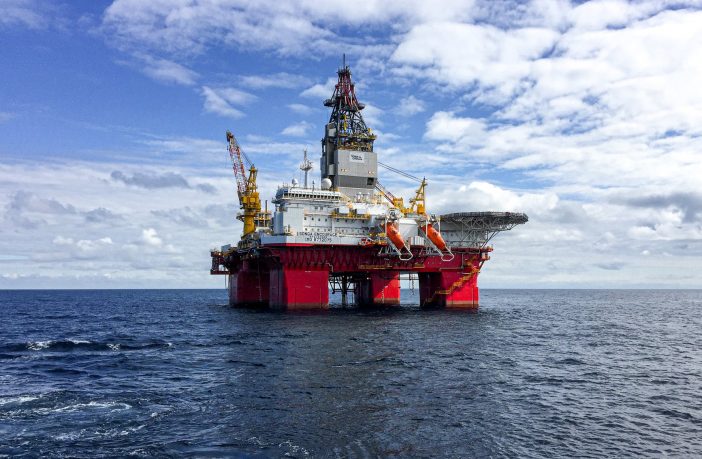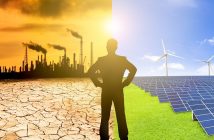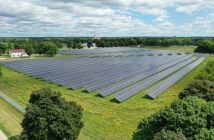Opinion
For the Global South, livability is tied to resource accessibility and opportunity, in that order. In Mozambique, TOTAL’s espousing of gaseous opportunity – as a figment towards reconciliation for decades of class exploitation – was perhaps a gamble that spurned them completely. Certainly, it seems strange that within the same month (13th April 2021), TOTAL E&P South Africa B.V (Tepsa) decided to postpone their application for additional drilling and associated activities in Block 11B/12B off the coast of George, Knysna and Mossel Bay.
Related news: Total shuts operations at Mozambique gas project and evacuates completely
While South Africa’s marine life may be jubilant, through ignorance, environmental and social activists remain cautious. What could Total’s pull-out indicate? This author wonders about three paths:
- By no means has TOTAL abandoned their interests in South Africa.
Perhaps most pessimistic, but most probable path, is that TOTAL are merely strategising in their assault of Africa’s natural resources. A bit of greenwashing here, some Corporate Social Responsibility (CSR) platitudes there and a dash of time will make the petroleum giant seem darling again before long. With each unfurling socioeconomic crisis the government will pay TOTALs antics in the Agulhas less mind and the pay off will be immense when their drill ships slither back to the East Coast.
Related news: Total inks deal for mega oil project in Uganda
We know it is not over yet for the oily alliance, since Luiperd, the neighbour to TOTAL’s Brulpadda rig, was lauded as having struck billions, in the gas sense of course. TOTAL are metastasized in South Africa. In addition to their frontier drilling interests, TOTAL still maintain a sizable infrastructure reach within the country and are also speculated to be involved in enabling the overly-expensive (fiscally and climatically) Karpowerships. But, civil society is organising and building capacity. Already, the arrival of the DeepSea Stavanger was met with fierceness not too long ago and the intergenerational inequity encapsulated in the Karpowership deployment is being challenged on environmental grounds
- We watch and wonder at whether our leaders will mandate gas upon us – a false transition fuel – with all the implications that holds.
The second avenue for their actions, perhaps, was that due to their inability to smother insurgency – through either enchanting governments, clever optics or untraceable promises – Total has decided to withdraw its “civilized” assets from these savage reaches of Africa. Such an extraction can be used to affirm the narrative that, it’s not their neoliberal stratagems that magnify scarcity, but rather the non-compliance of beholden government regimes, and that it’s the people’s own fault for pushing away “development”.
The Mozambiquan insurgency, the fracking pushback at the Okavango Delta from Namibian stalwarts against ReConAfrica – a Canadian multinational headquartered in Vancouver – and the activism against hydrocarbons from South Africa has perhaps made these African destinations undesirable to the empires of oil and gas, for now. Though paradoxically we could be playing directly into their hands when these bloated corporations begin to leverage royalties and sign-on bonuses for incumbent administrations in an effort to tap the very same resources again. As Ex-CEO of EXXON, and ex-secretary of state under Trump, Rex Tillerson put it:” The right kind of dictators can be more predictable and profitable than democracies”. We watch and wonder at whether our leaders rise to the occasion of mandating gas upon us, as a false transition fuel with all the implications that holds.
- An exercise in futility?
And finally, perhaps the most optimistic and futile thought avenue is the one by which environmentalists also celebrate with the marine life at TOTALS pull-out game. We dare to dream of a world where new hydrocarbon projects are dashed against the debt future generations will bear. An avenue which sees the disentangling of oil exploitation from developing nations, a world where mothers don’t have to wash oil off their children’s food (fish), one where refineries don’t explode at night setting poor homes on fire. Perhaps this pipe dream involves no pipes at all, and our feeble wish for a more humane development pathway with accessibility in hand with opportunity exists for Africa? Only time will tell.
Author: Khalid Mather
 Khalid Mather is an environmental activist from Stanger in KwaZulu-Natal, the Advocacy Coordinator at WILDOCEANS and a participant in the Green Connection Legacy Programme plus Oceans Not Oil.
Khalid Mather is an environmental activist from Stanger in KwaZulu-Natal, the Advocacy Coordinator at WILDOCEANS and a participant in the Green Connection Legacy Programme plus Oceans Not Oil.











